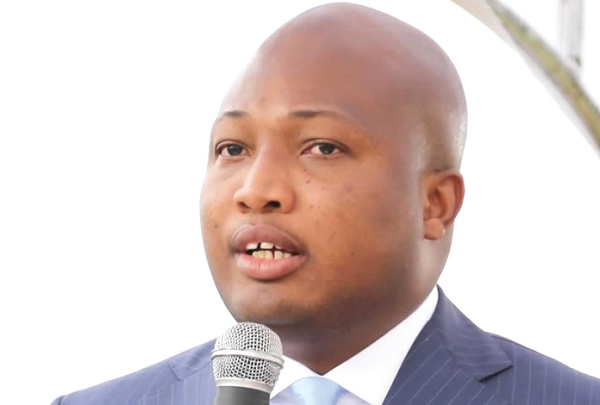North Tongu Member of Parliament, Samuel Okudzeto Ablakwa has accused President Nana Addo Dankwa Akufo-Addo of introducing taxes in the 2022 budget statement in order to finance his extravagant lifestyle.
He described the the taxes in the 2022 budget as draconian.
“A President who refuses to account for his profligate sybaritic travels & still seeks to impose even more draconian taxes so he can keep financing his extravagant lifestyle must rank very high on the global league of the most insensitive & heartless leaders. Kill the killer taxes!} he said on Thursday November 25.
He further said that the Minority in Parliament will not endorse the new taxes introduced in the 2022 budget statement.
He described the taxes as draconian hence, their decision not to support proposals.
In a tweet after contributing to a debate on the budget statement in Parliament on Tuesday November 23, he said “I sent a clear, loud and unambiguous message to the Finance Minister during Parliament’s debate on the 2022 Budget.
“The NDC caucus in Parliament isn’t available to be convinced by him to support govt’s draconian taxes. We were sent to Parliament by the Ghanaian people not him.”
The Finance Minister Ken Ofori-Atta announced a new levy to be charged by government in 2022 on all electronic transactions to widen the tax net and rope in the informal sector.
“It is becoming clear there exists enormous potential to increase tax revenues by bringing into the tax bracket, transactions that could be best defined as being undertaken in the ‘informal economy’,” Mr Ofori-Atta observed on Wednesday, November 17 as he presented the 2022 budget statement in Parliament.
“After considerable deliberations, government has decided to place a levy on all electronic transactions to widen the tax net and rope in the informal sector. This shall be known as the ‘Electronic Transaction Levy or E-Levy’.”
He explained that the new E-levy will be a 1.75 per cent charge on all electronic transactions covering mobile money payments, bank transfers, merchant payments and inward remittances to be borne by the sender except inward remittances, which will be borne by the recipient.
This will, however, not affect transactions that add up to GH¢100 pr less per day.
“A portion of the proceeds from the E-Levy will be used to support entrepreneurship, youth employment, cyber security, digital and road infrastructure among others.”
This new levy is scheduled to start Saturday, January 1, 2022.
In 2020, total value of transactions was estimated to be over GH¢500 million with mobile money subscribers and users growing by 16 percent in 2019.
According to a Bank of Ghana report, Ghana saw an increase of over 120 percent in the value of digital transactions between February 2020 and February 2021 compared to 44 percent for the period February 2019 to February 2020 due to the convenience they offer.
This was definitely heightened by the advent of Covid-19 especially during the lockdown.







